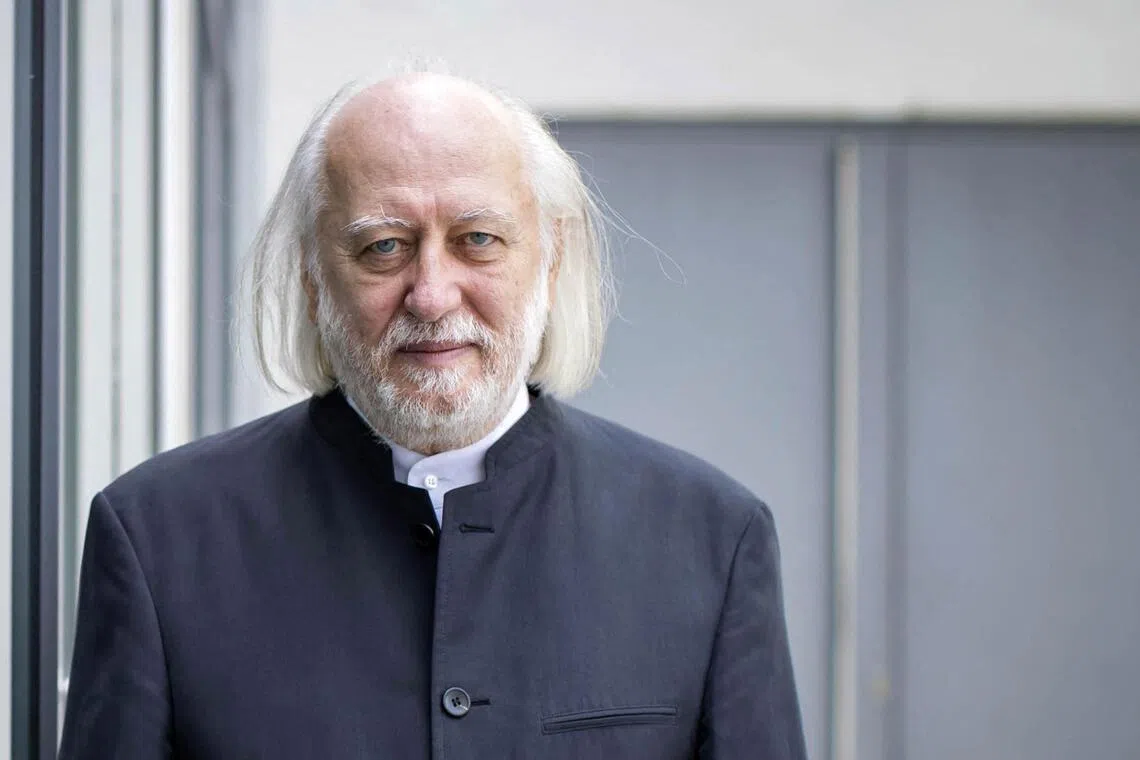TBR (To Be Read): Will South-east Asia ever win its first Nobel Prize in literature?
Sign up now: Get ST's newsletters delivered to your inbox

Hungarian writer Laszlo Krasznahorkai won the 2025 Nobel Prize in Literature on Oct 9.
PHOTO: AFP
Follow topic:
SINGAPORE – South-east Asia, with a population of over 700 million, has exactly zero Nobel laureates in literature out of the 122 awarded. Have no worthy writers come out of the region or are the prize’s opaque processes unfair, unadventurous, unenlightened and simply unbothered by a far-flung and variegated region?
The question of South-east Asia being the “odd one out” – every other region seems to have had its turn – bothered the late political scientist Benedict Anderson, who, in his 2012 essay The Unrewarded, laid out the capricious patterns of the prize’s distribution and South-east Asia’s uneasy position in the laurel line-up.
Anderson – who was fluent in Indonesian, Javanese, Thai and Tagalog – offered possible geopolitical explanations. “None of the national languages of South-east Asia has any transnational aura,” he wrote, citing how the creation of national languages had favoured powerful groups, disenfranchising others.
Certainly, no South-east Asian language today has the allure of the Korean language, for example. W riter Han Kang was only the first South Korean writer to receive the Nobel Prize in 2024
On Oct 9, the Swedish prize announced Hungarian writer Laszlo Krasznahorkai as the 2025 Nobel literature laureate
Yes, the selection process is too secretive and its results can be parochial. India has not had a literature laureate since poet Rabindranath Tagore won in 1913 and China has one – Mo Yan – or two, if you count Jiangxi-born writer Gao Xingjian, a naturalised French citizen.
But what was instructive about Krasznahorkai’s win was what his Anglophone advocates said about how they championed his work.
Poet George Szirtes lamented the death of the translator in discussions about Krasznahorkai’s work. Yet, it is because Szirtes brought his lyric sensibility to the latter’s 70-page long sentences as his first English translator that the Hungarian writer could go this far in the world of prizes.
Irish novelist Colm Toibin wrote in The Guardian of how he set up Tuskar Rock Press for the sole purpose of introducing the Hungarian writer to Britain. He had read Szirtes’ translation published in the United States and was entranced by “the snaking sentence, the high-wire act”.
In short, there is no advocate like the enthusiastic reader.
There is already a small band of translators of South-east Asian literature into English called “the seams” – the metaphor is apt. Anderson advocated for Indonesian writer Eka Kurniawan. Malaysian-Chinese readers seem to favour the novelist Li Zishu Vietnamese writer Thuan, translated by Nguyen An Ly
Rather than seek a Swedish prize’s recognition, more enthusiastic readers of South-east Asian literature should become advocates – even if that means simply introducing someone to a writer in a language you read in. It is what the unrewarded in South-east Asian literature needs.

